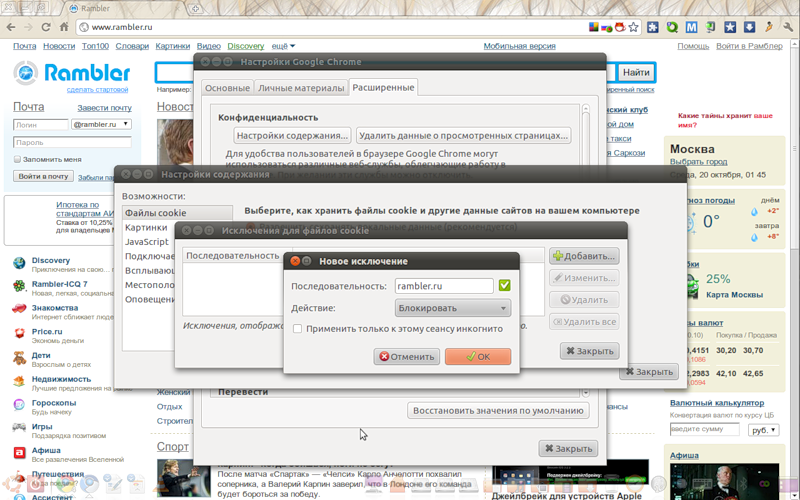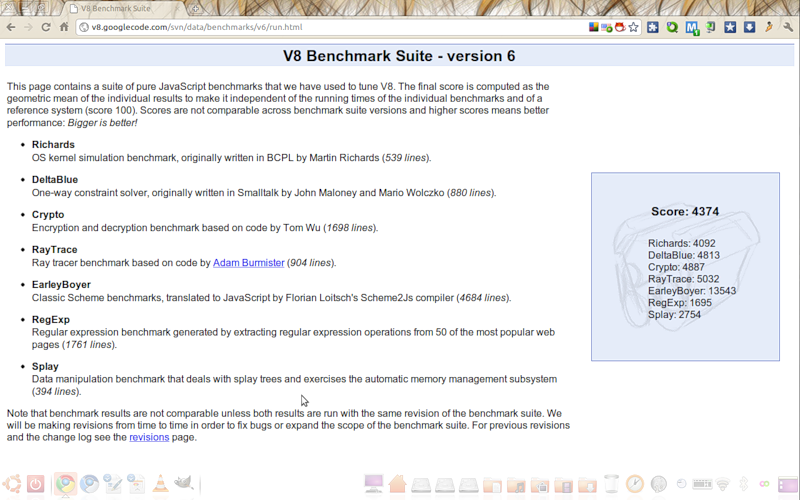Upgrade line. Meet Google Chrome 7 Stable

So, according to the accelerated release calendar for new versions, Google has transferred the seventh version of the web browser to the channel Stable. And, unfortunately, updates personally do not make me very happy. Developers, of course, actively saw the browser, releasing not just daily assemblies, but hourly ones, changing and adding functionality, but they did not add any serious changes. It seems that Google is chasing tsiferkami, giving each bugfix a new major figure, although, in my opinion, the changes are pulling at 6.1, or even 4.5, because since the launch of the extensions nothing revolutionary has been added. I place particular expectations on the 8th branch, since there a hybrid of the operating system and a browser is waiting for us. Yes, that same Chromium OS (in a slightly reduced size), which not so long ago quietly passed into the Release Candidate stage.
So, changes of the seventh version:
1. Fixed several hundred bugs.
2. New HTML5 parsing algorithm. Before the advent of HTML5 specifications, there was no standard for how browsers should handle markup with errors. With the advent of the new algorithm embedded in WebKit (which means that this algorithm will be used in future versions of Safari) and used in Firefox 4, browsers will display the same pages with errors. This will ensure better compatibility between pages and browsers, as well as, as a bonus, the ability to embed SVG and MathML in HTML. To embed an SVG, you simply add a tag to your HTML page, and you can use the full power of SVG.
3. File API .
4. “Directory Upload” via input-tag. Now it is possible to upload files to some services, but entire directories with files. Thanks to the new tag, services will be able to read the contents of folders and download them to themselves.
5. Ability to specify exceptions to save cookies.

Thus, Google Chrome has a complete analogue of the so missing settings for the site at Opera. You can prevent certain resources from saving the same deanonymizing files that are clogged in large quantities on sites.
6. Closing a number of vulnerabilities .
I will run several tests on Ubuntu Linux 10.10, Intel Core 2 Duo 2.26 GHz, 2Gb RAM:
one). Google Chrome 7 still sets the tone for HTML5 support, leaving the rest of browsers far behind.

2). In the benchmark V8 Chrome has long been ahead, showing high results. The seventh version is no exception:

In general, most likely WIN than FAIL, although we did not get support for WebGL / Hardware Acceleration / Print Preview, although they promised us the support of the first and the last. Apparently, Gugel decided to show what they have in store, but so far they have decided not to post it. Also, the built-in blocker for launching plug-ins, which blocked the launch of Flash / Silverlight content of the page, was not enabled until the user launched it.
')
Download Browser for Linux / Mac / PC
Source: https://habr.com/ru/post/106483/
All Articles